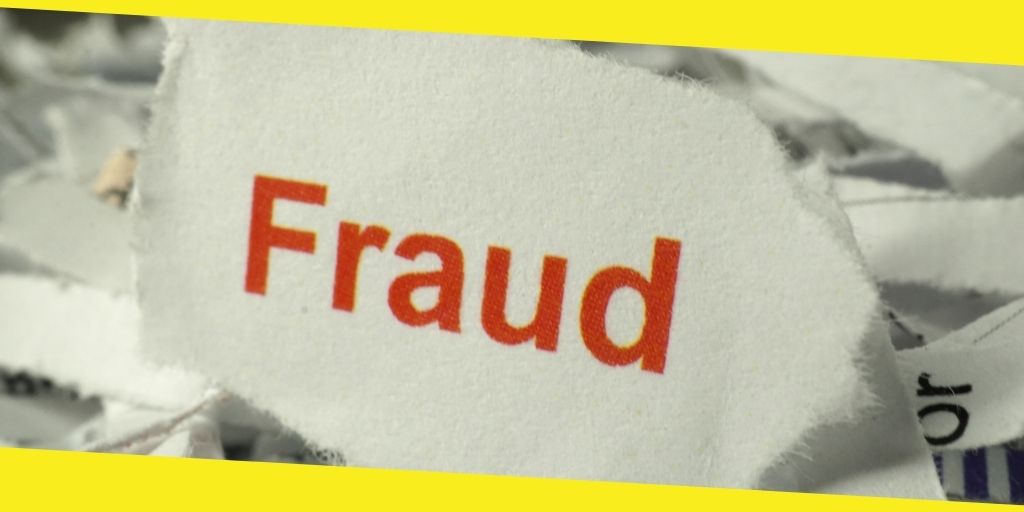Beware of These Most Popular Healthcare Frauds

While medical providers and individuals working in the healthcare industry are a blessing to this world, a handsome amount of them is crooked enough to scam the people who are in need of the most care and attention.
It shows that healthcare is not above any other industry when it comes to frauds and scams. And the fraudsters are not limited to workers only. Patients, employers, vendors, pharmacists, and even doctors and nurses are found facing charges for alleged crimes they committed inside and outside the medical institution.
In fact, computer hackers and tech geniuses also play a big part when an elaborate, organized healthcare fraud is being committed.
One of the reasons why the healthcare industry is prone to such scams is the huge piles of easy cash. Healthcare and the medical industry are one of the most revenue-generating industries in the US. Just by 2010, it stood to become 18% of the annual GDP of the country. It is projected that the amount of money spent on healthcare grows at an average rate of 6.2% yearly. And greed is where the money is.
It makes you wonder: while people are associating the healthcare industry with pure goodness and the epitome of kindness, there are certain apples that went south.
Below is a list of common fraudulent schemes that occur in most healthcare institutes. And if you are an individual working in healthcare, these may also be happening at your place of work. Beware!
Contents
Toggle1. Billing for goods and services that are not rendered
It is a very common fraud in medical institutes and healthcare centers to give you a bill for a certain treatment or medicine that is never rendered. It means the hospital staff will demand you to pay a bill for something that they never provided the patient. This can be X-rays, laboratory tests, injections, or drugs.
Moreover, these services can also be “upcoded” to get more money from the patient. A patient is not always completely aware of what kind of services they are getting from the doctor and to what extent these services are being provided – what they focus on is being better.
However, some doctors take this opportunity to pull off a different upcoding scam. For instance, if a doctor charges by the units of time, the time will be expanded when you are paying the bill. You would get a really minor service but that will be upcoded as labor-intensive work when you are paying the bill.
2. Kickbacks
Paying kickbacks is another fraud very common in the healthcare industry. Kickbacks are referred to payment, gift, property, or something of value to another medical individual to boost your business by referring other customers and patients to you.
State and federal laws strictly prohibit certain transactions that involve referring patients to a particular hospital, doctor, or medicine in exchange.
For instance, if a doctor tells their patient to go see a particular doctor at a particular hospital, they might be doing this because they have accepted significant payment to refer customers.
3. Charging personal expenses
This scam is one of many that go down in nursing homes. Nursing homes get their money annually after the submission of a cost report. However, the nurses and accountants at the nursing homes are only allowed to mention the costs and expenses of patients and residents, not their own.
Mentioning personal expenses coated as the expenses of patients is illegal and fraudulent. For example, if a nursing home administrator includes the cost of his car on the expense report of the nursing home, it will be a criminal violation.
4. Having nurses and staff perform examinations
According to Medicaid billing rules, certain medical procedures and examinations can only be performed by a qualified doctor or physician. However, not all physicians are completely sincere with their job.
It is an emerging fraud in the healthcare industry where the physicians in charge allow nurses to handle routine patient procedures. Although nurses have spent their time and effort on patients, physicians bill the government for the cost of the time that doctor has performed with the work.
That way, a doctor is paid for the work they didn’t do. Where it is prohibited by the law to do such a thing, it is also very dangerous for the patients to get examined by an inexperienced individual.
In one case, a clinic staff individual misheard the doctor’s directions and gave the wrong drug injection to a patient that caused a horrible reaction and created a huge wrongful drug injecting case. In such cases, a reliable drug attorney comes in handy to avoid getting the wrong verdict.
5. Coating covered services as uncovered
When a patient visits a hospital, they are insured by the insurance company and they don’t have to pay. It becomes the responsibility of the insurance company to pay to the hospital or clinic.
However, some fraudulent practitioners at these healthcare centers charge you for the services that were already covered by your insurance. They will you that this insurance wasn’t covered you have to pay for it. In actuality, it was covered and they basically got paid twice, one from you and one from the insurance company.
6. Billing for unnecessary services
Certain health care organizations have been running this scam for ages. What they do is misrepresent your health condition on their records and send an invoice to the insurance company, charging them a higher rate of reimbursement for things that they didn’t even give you or things you didn’t really need.
For instance, if a patient visits a hospital simply for a cold, the doctor will give them a cold medicine. However, on the record, they will record it as a diagnosed condition of pneumonia, associated with pneumonia testing. They will send this record to insurance companies to get more money.
7. Inflation of bills
Inflating bills for services provided is a scam that occurs almost regularly in the transportation sector of the healthcare industry. People who are associated with transporting patients, medicines, drugs, and hospital supplies get reimbursed for the fuel that they have used to take the goods from one place to another.
To get more payment, taxi and van companies inflate their mileage on bills (claiming it more than it actually is) to get higher reimbursements.
Who to Report Such Hospital Scams?
In such cases where you feel morally obligated to report, there is a good chance that you can lose your job and a lot of money in the process, and that becomes worse if your whistleblowing doesn’t even get you the results you wanted.
However, to feel secure about your life and career and hear about your claims, contact a good, experienced, and professionally reliable health care fraud attorney to be by your side during the entire process.
If you work in the healthcare industry, it is also possible that you are facing wrongful charges and being investigated for the crimes you didn’t commit. You would think that you don’t have anything to worry about. However, if you say the wrong thing in front of the wrong person, it can create problems for you. Therefore, it is always better to consult a lawyer first.
Recommended For You
How Bad Is a Reckless Driving Charge?
Most Inside
Most Inside offers high-quality recommendations and valuable updates to enhance all aspects of your life, providing premium guidance and enriching experiences.




